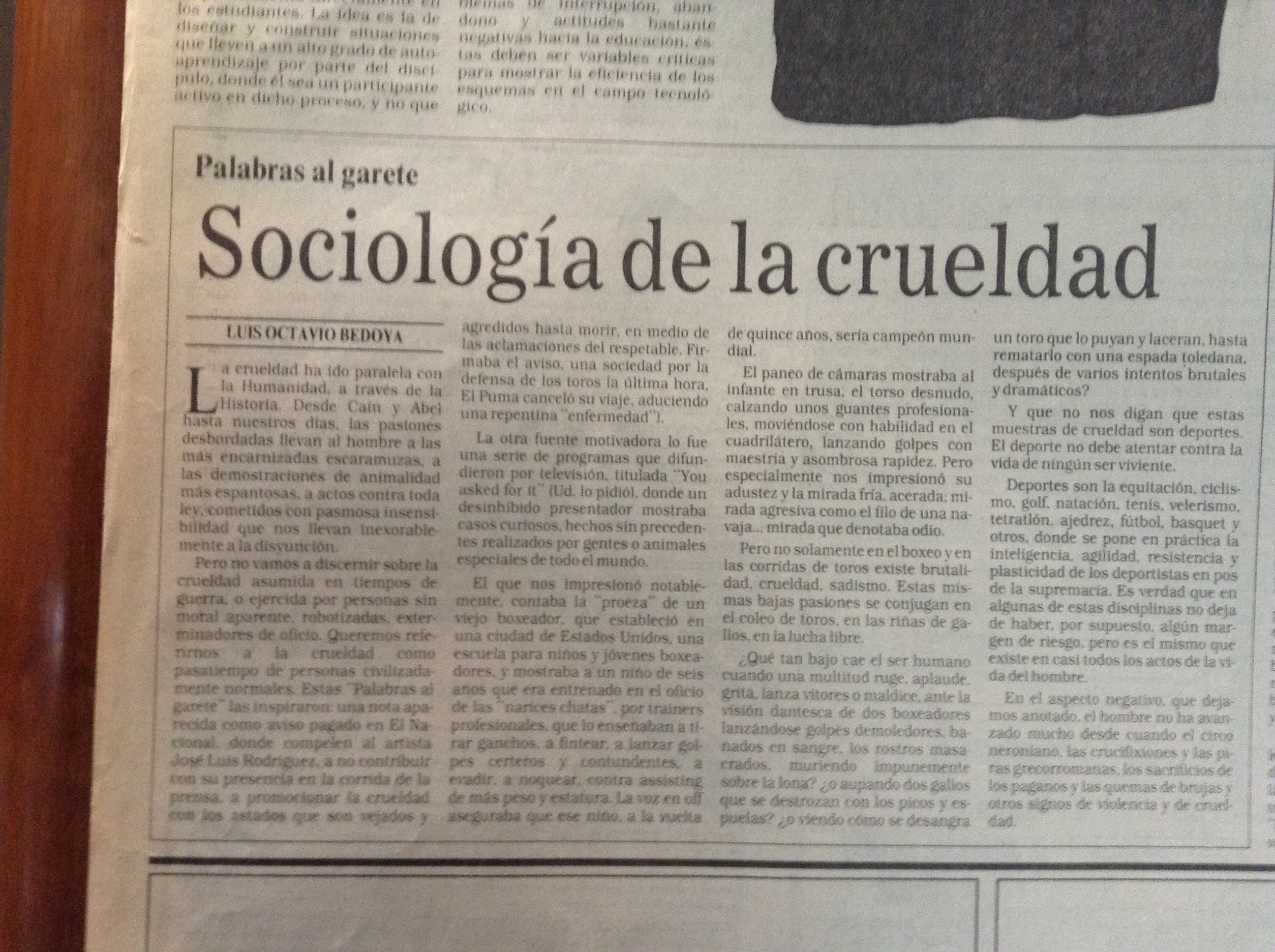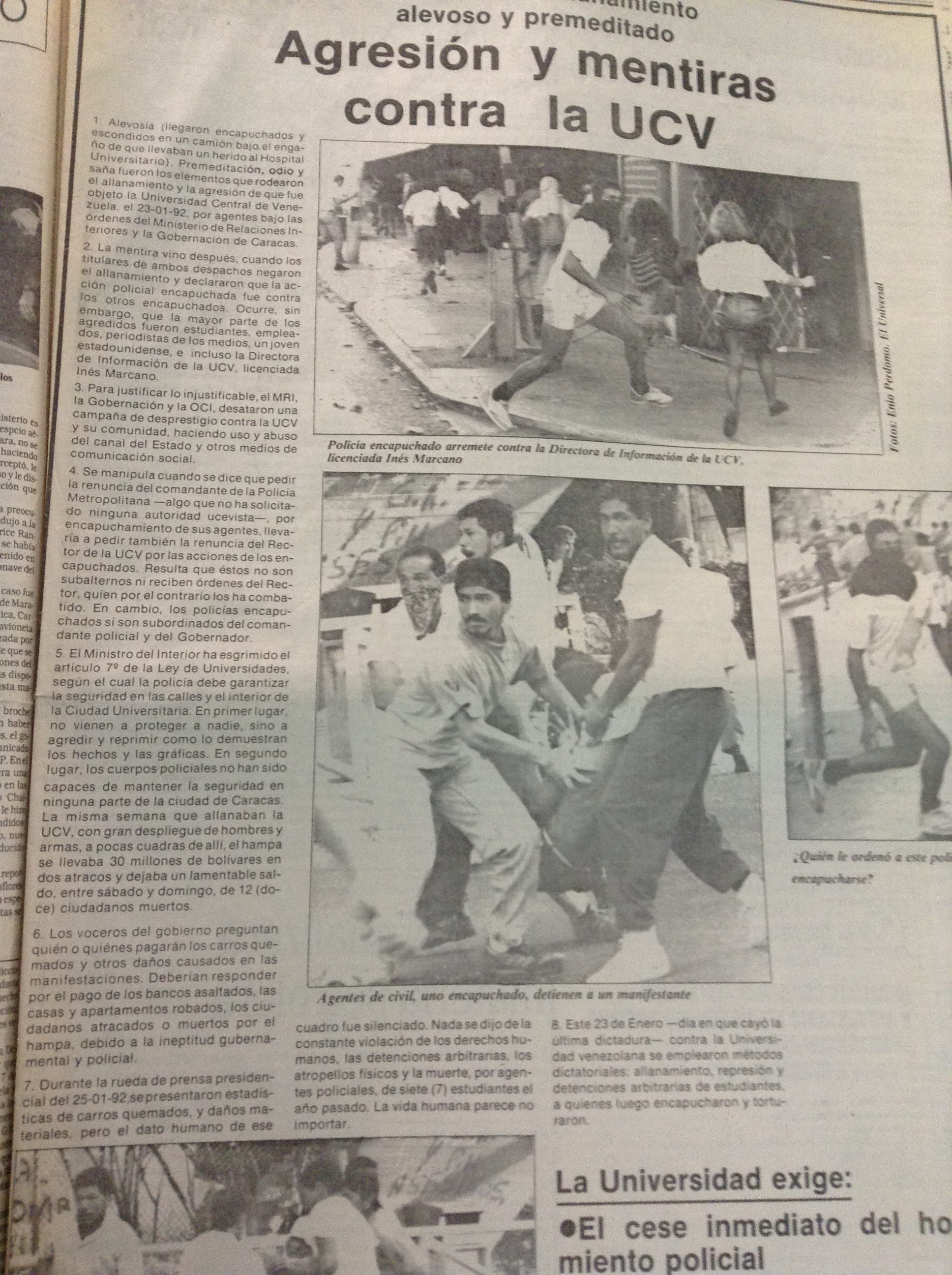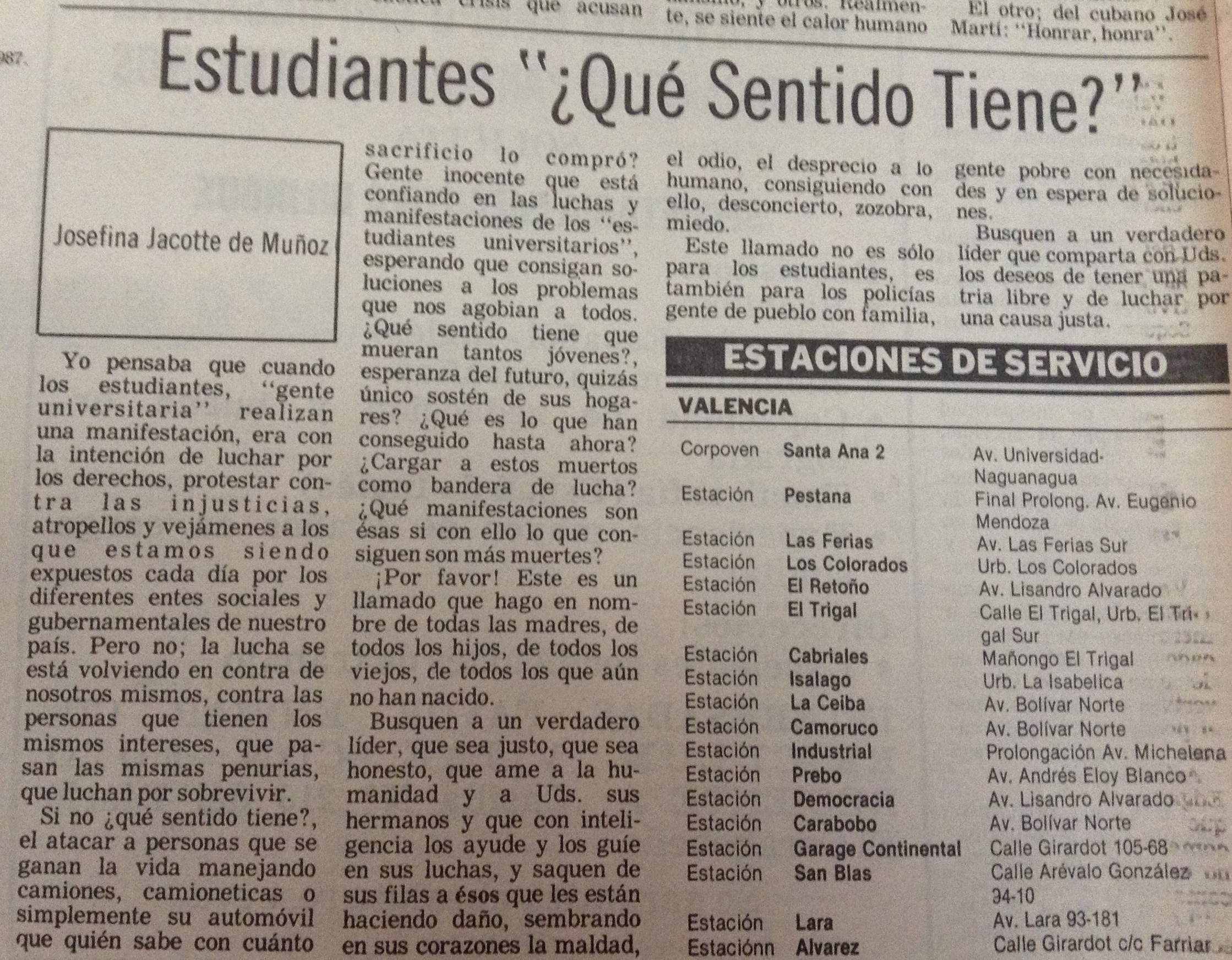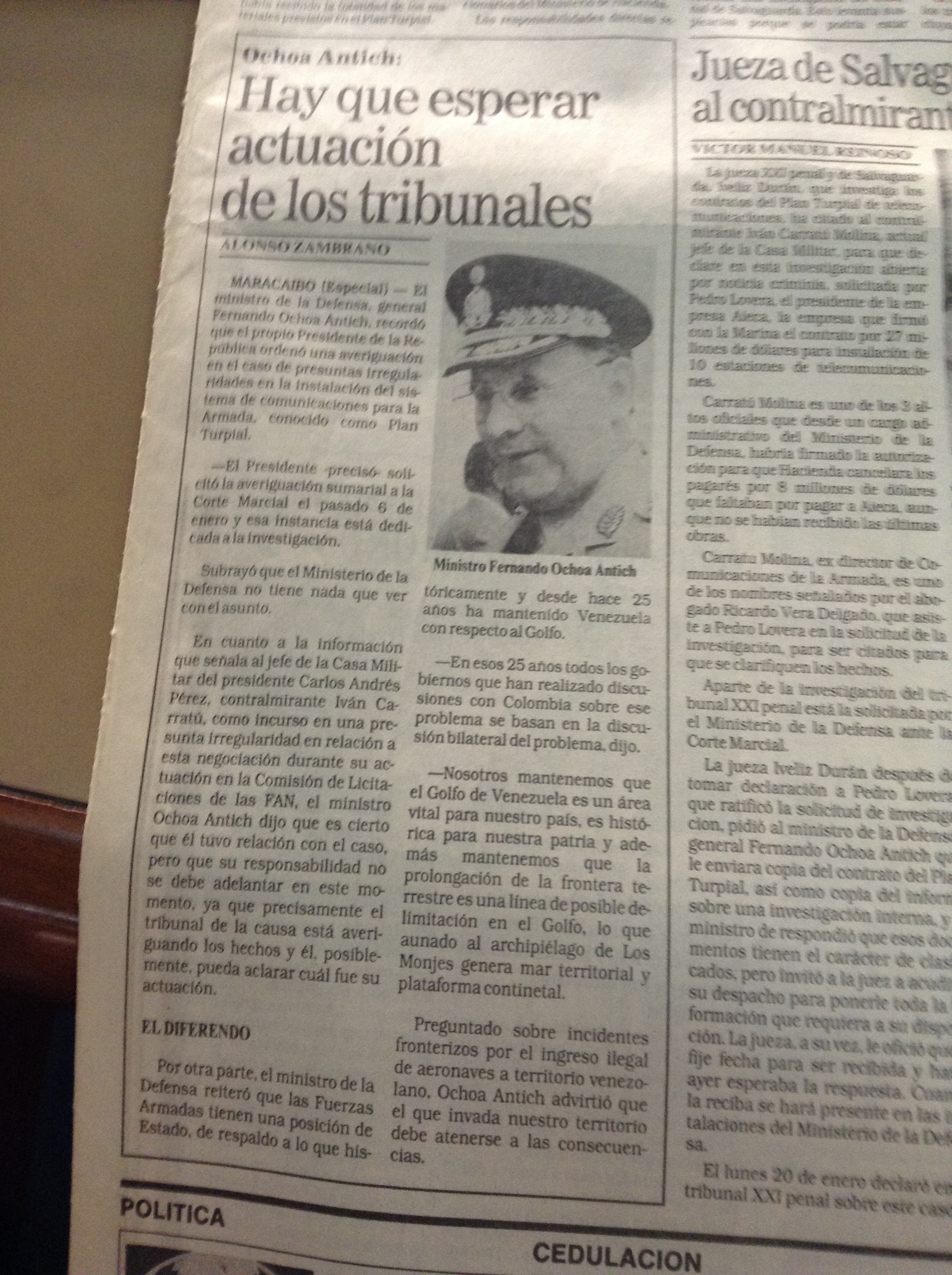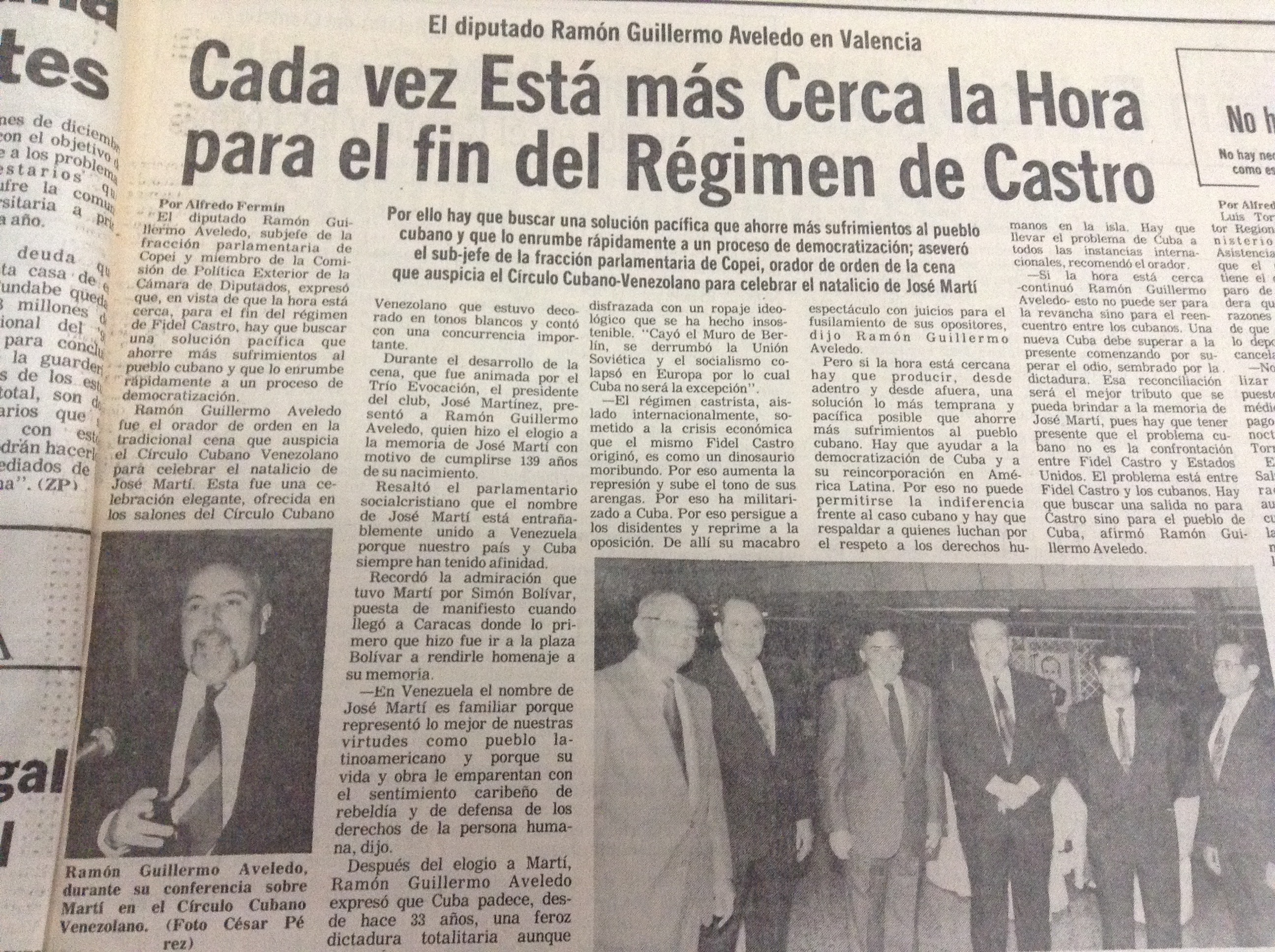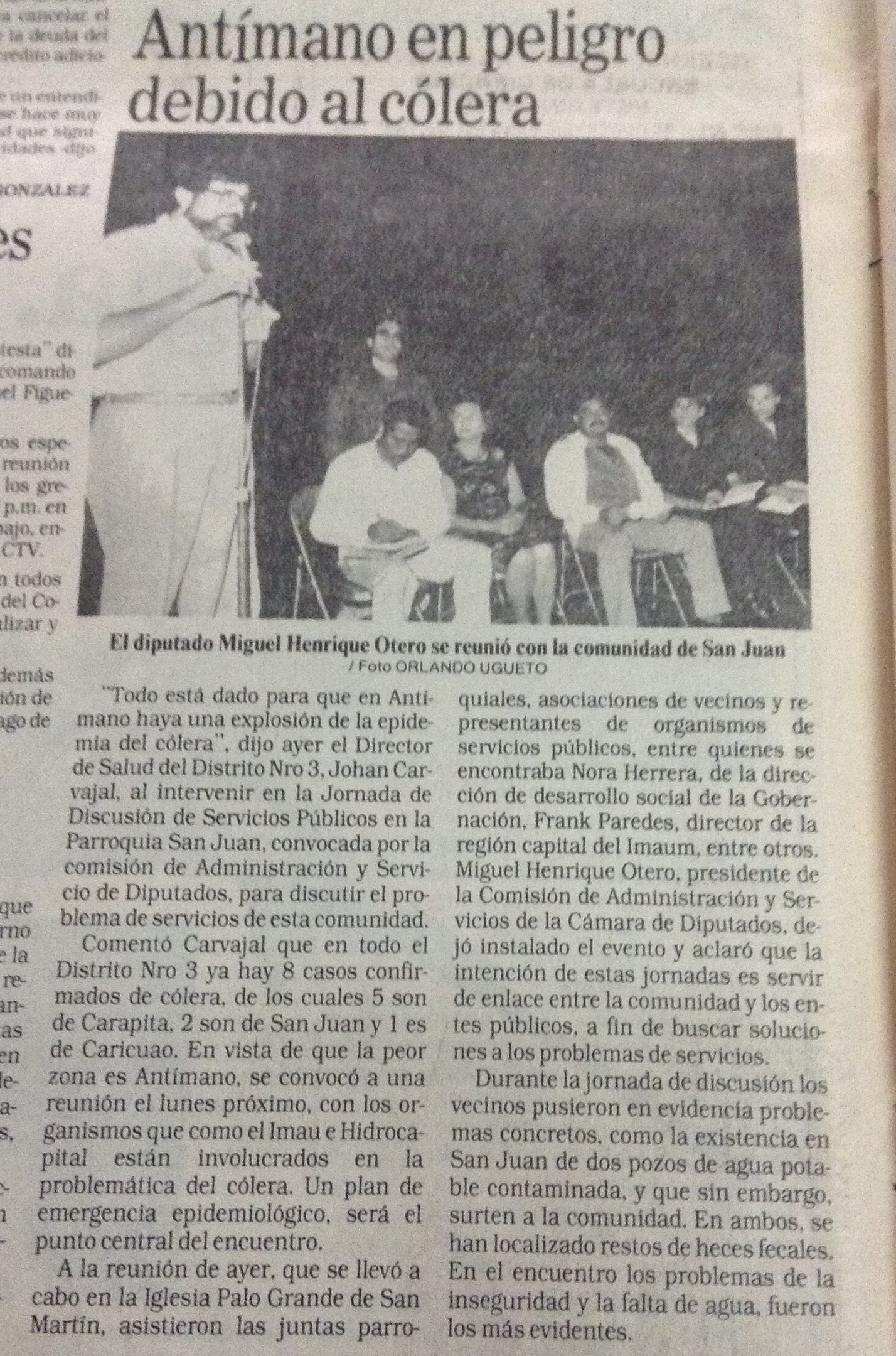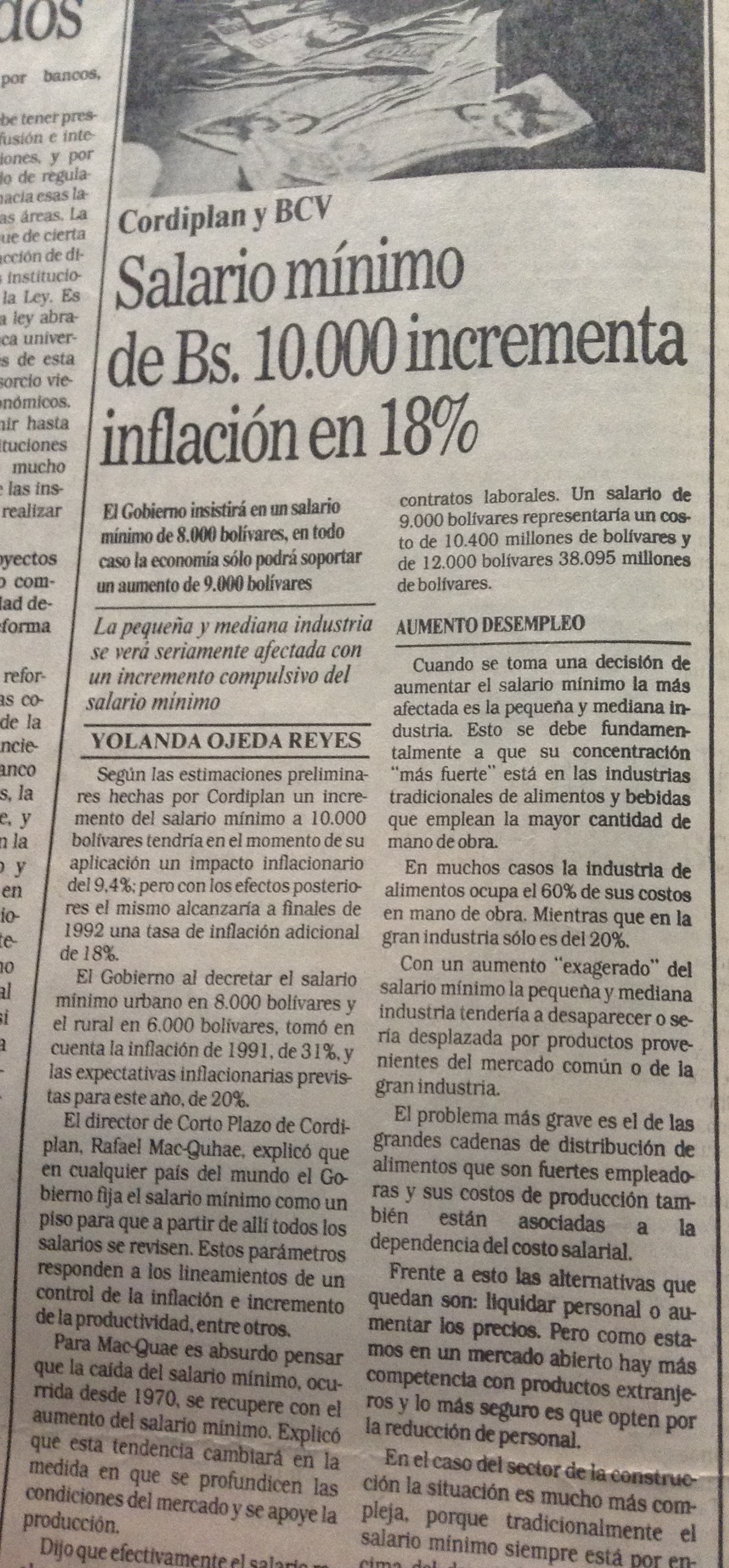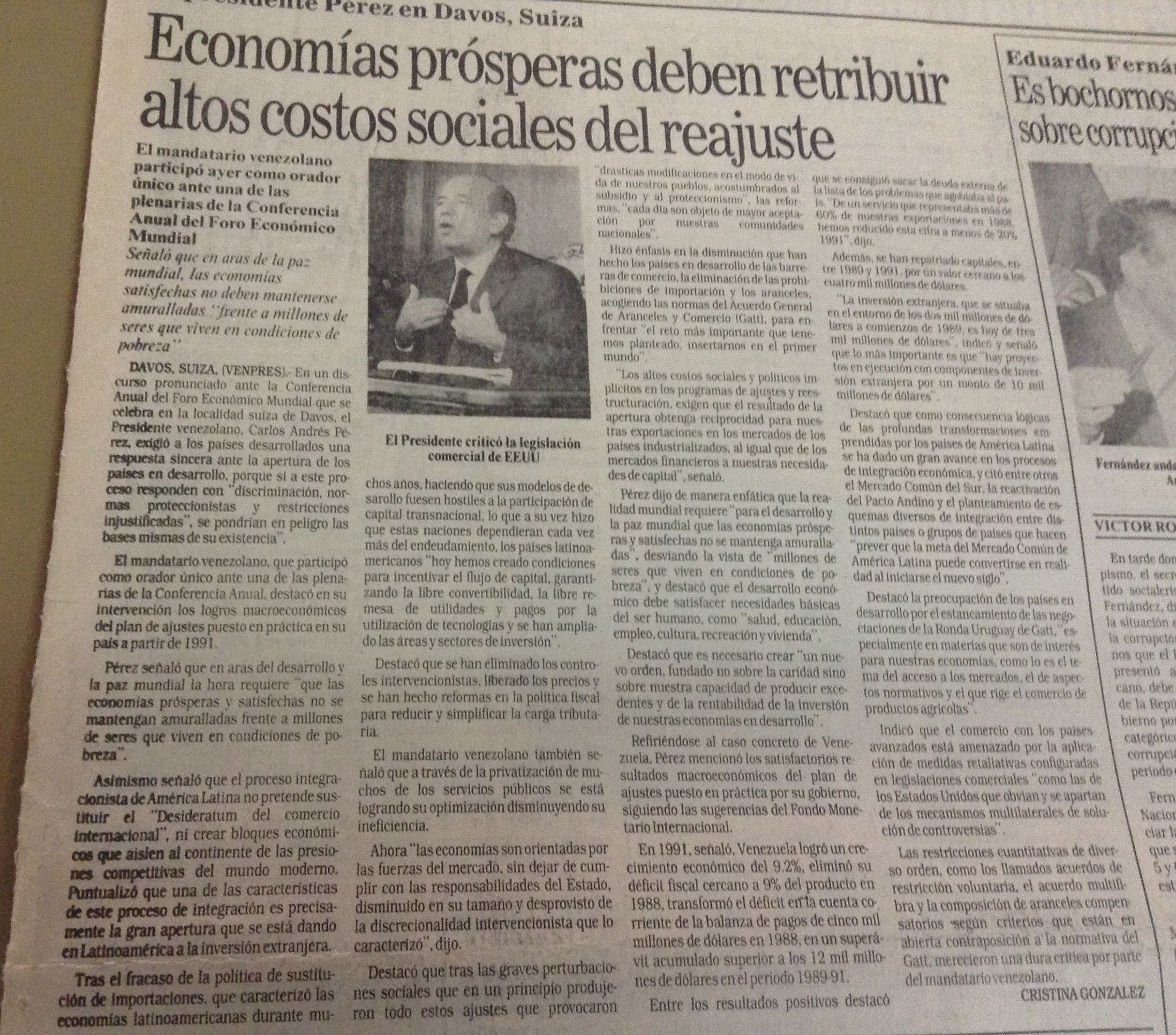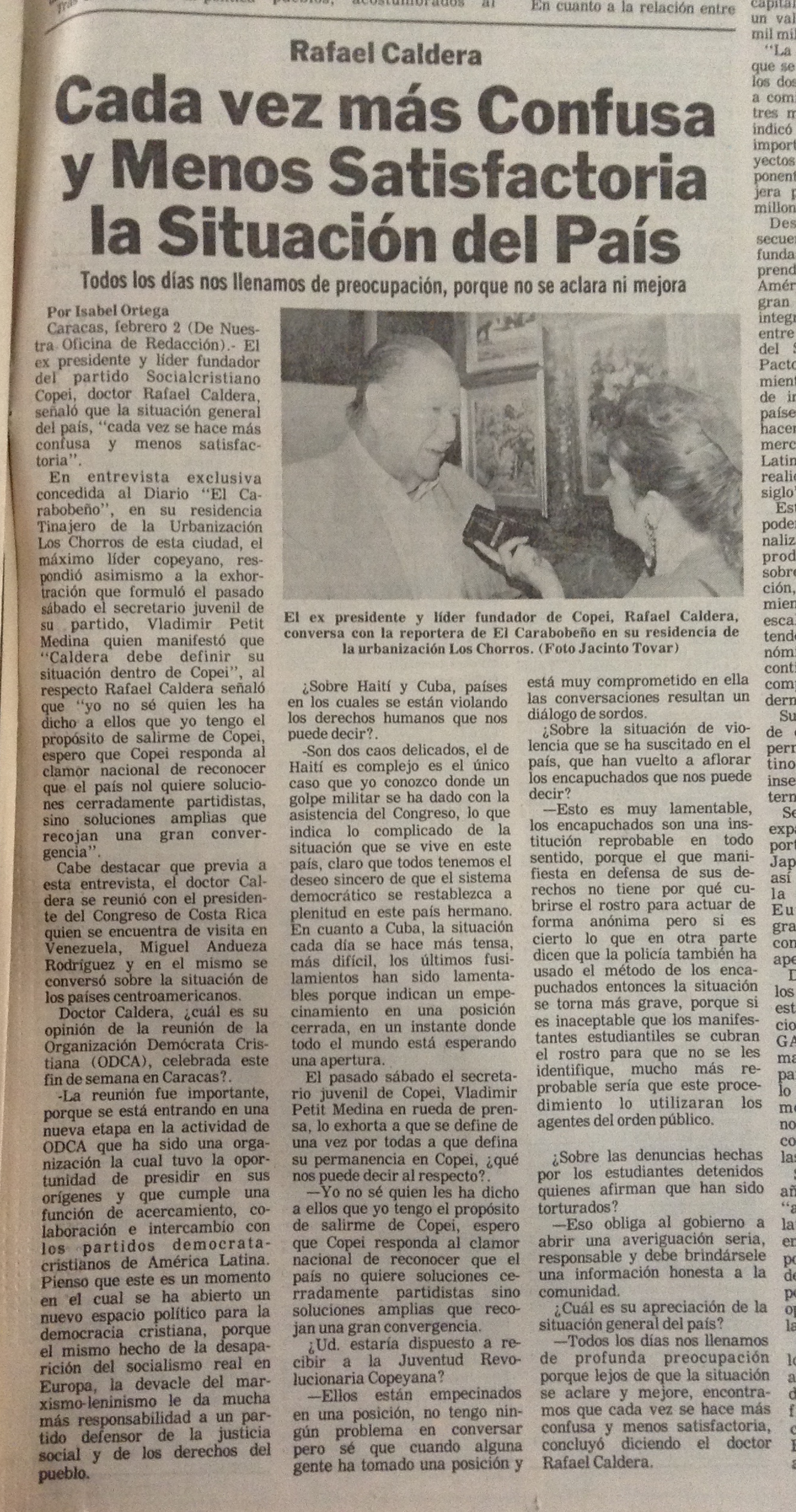The Venezuela That Ended 25 Years Ago Today
We take a deep dive into Venezuela's press a week ahead of the February 4th, 1992 coup attempt to rediscover a world that's disappear never to come back again.


25 years ago today, Venezuela changed decisively. A coup attempt led by mid-ranking army officers of unclear ideology sent society spiralling off kilter.
Personally, I’ve always been more curious about February 3rd than February 4th, though. About the political scene the coup-attempt destabilized for good. Was there a sense of crisis? Of inevitability? Of foreboding?
Our researcher Dora Guerrero went off to the Hemeroteca Nacional in Caracas to see what the newspapers in the days leading up to the coup felt like.
I can’t say it looks to me like a country on the brink. The two big stories of the week had to do with the government’s harsh reaction to Student Protests at the Universidad Central de Venezuela, which had been the site of a roiling, low-level riot pulled off by masked molotov-cocktail throwing kids for years at that point.
The big debating point:
When is it acceptable for the government to set aside the long tradition of “university autonomy” and send state security bodies to arrest rioting kids?
In favor of the crackdown? Old-time AD stalwart Gonzalo Barrios:
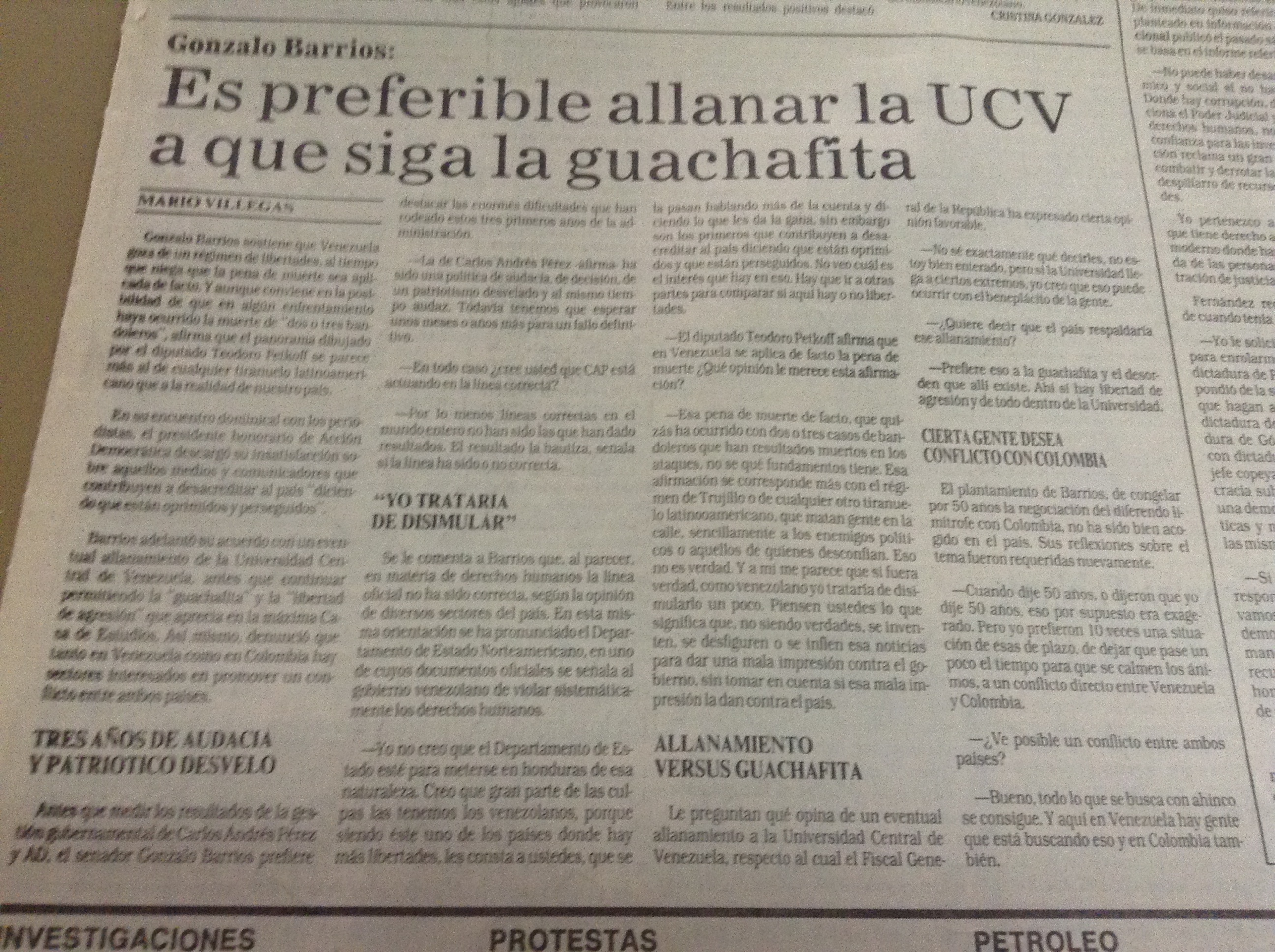
Against?
A whole lot of professors:
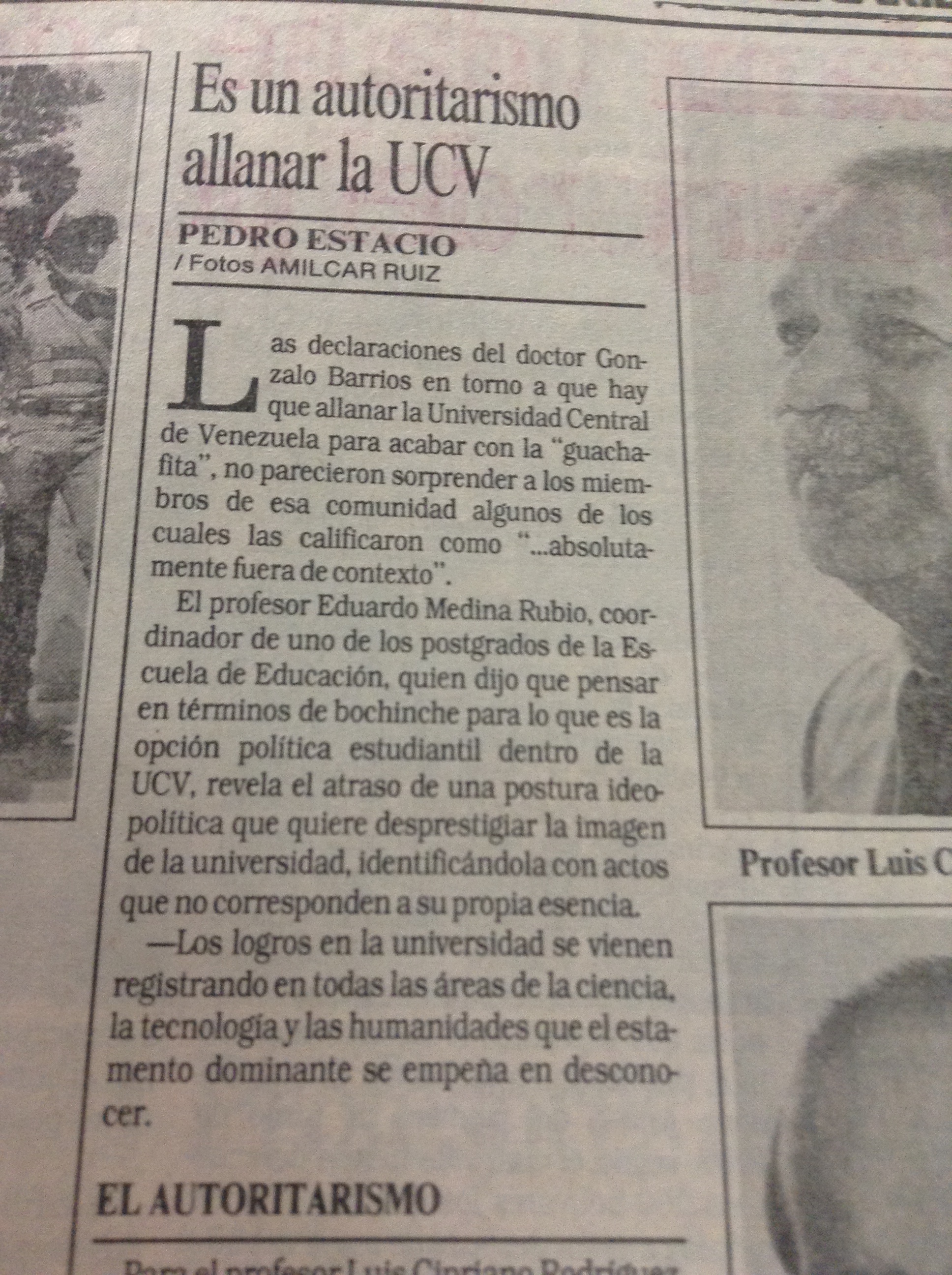
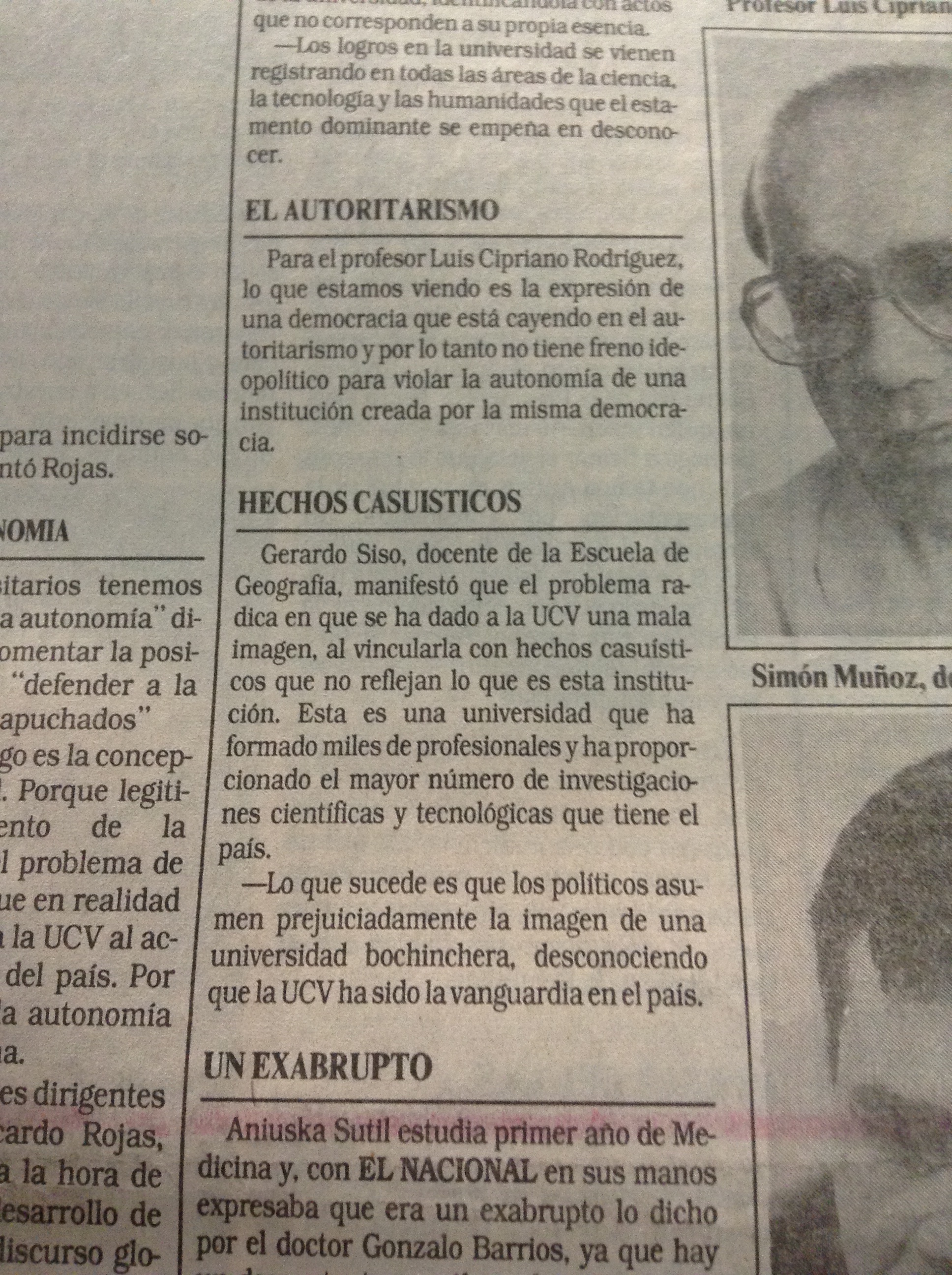
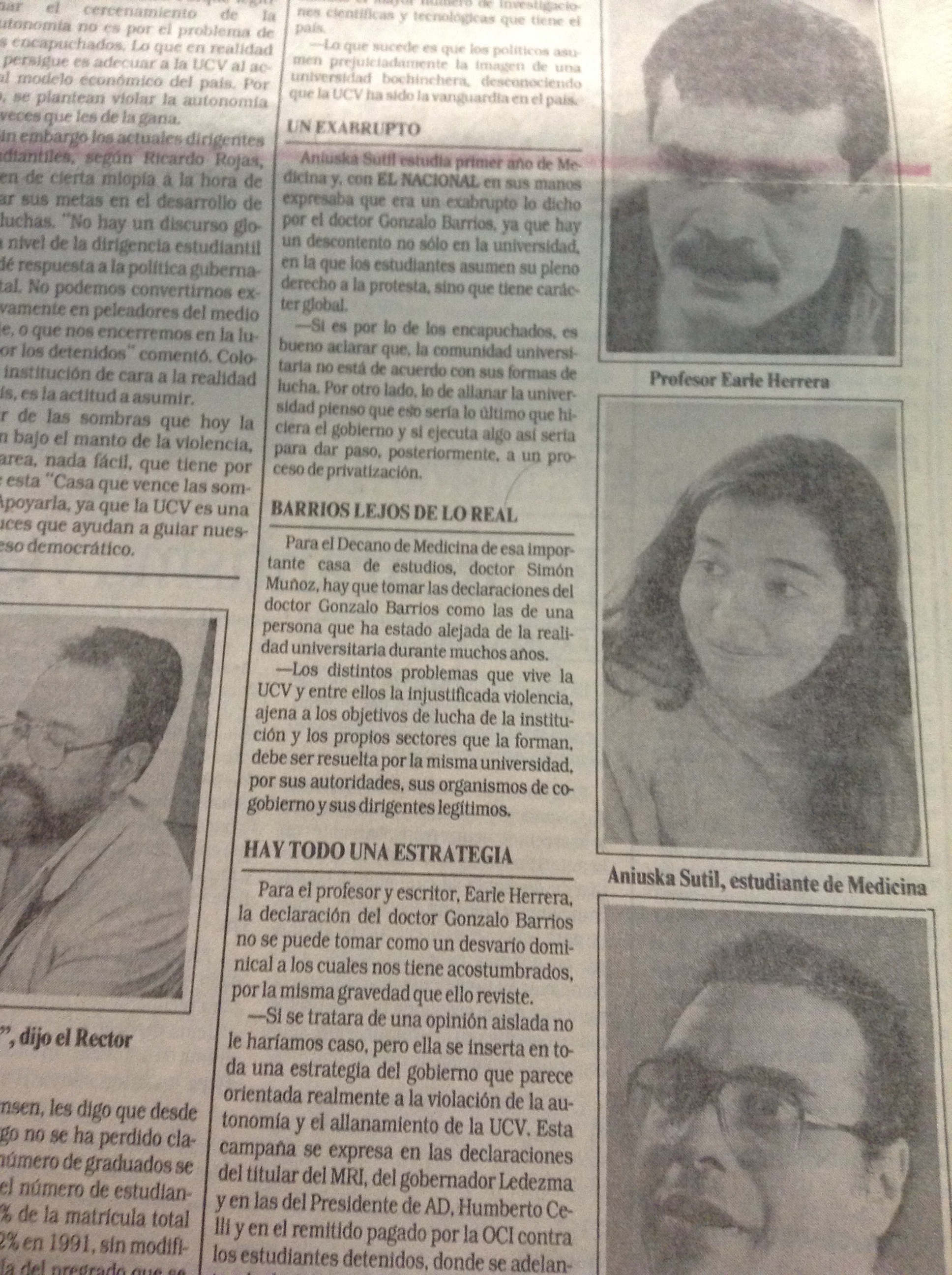 And this guy…
And this guy…
The full page ads were coming thick and fast
But Barrios wasn’t entirely alone:
Plan Turpial
The second big thing exercising the papers that week was the Plan Turpial — a now completely forgotten corruption scandal involving the procurement of communications equipment by Casa Militar, the president’s personal security detail.
Here’s then-defense minister Fernando Ochoa Antich running away from the scandal (instead of worrying about the coup about to send Venezuelan democracy into a death spiral…)
Maybe if the Head of the President’s security detail had been worrying less about Plan Turpial, he’d have had his head on the ball:
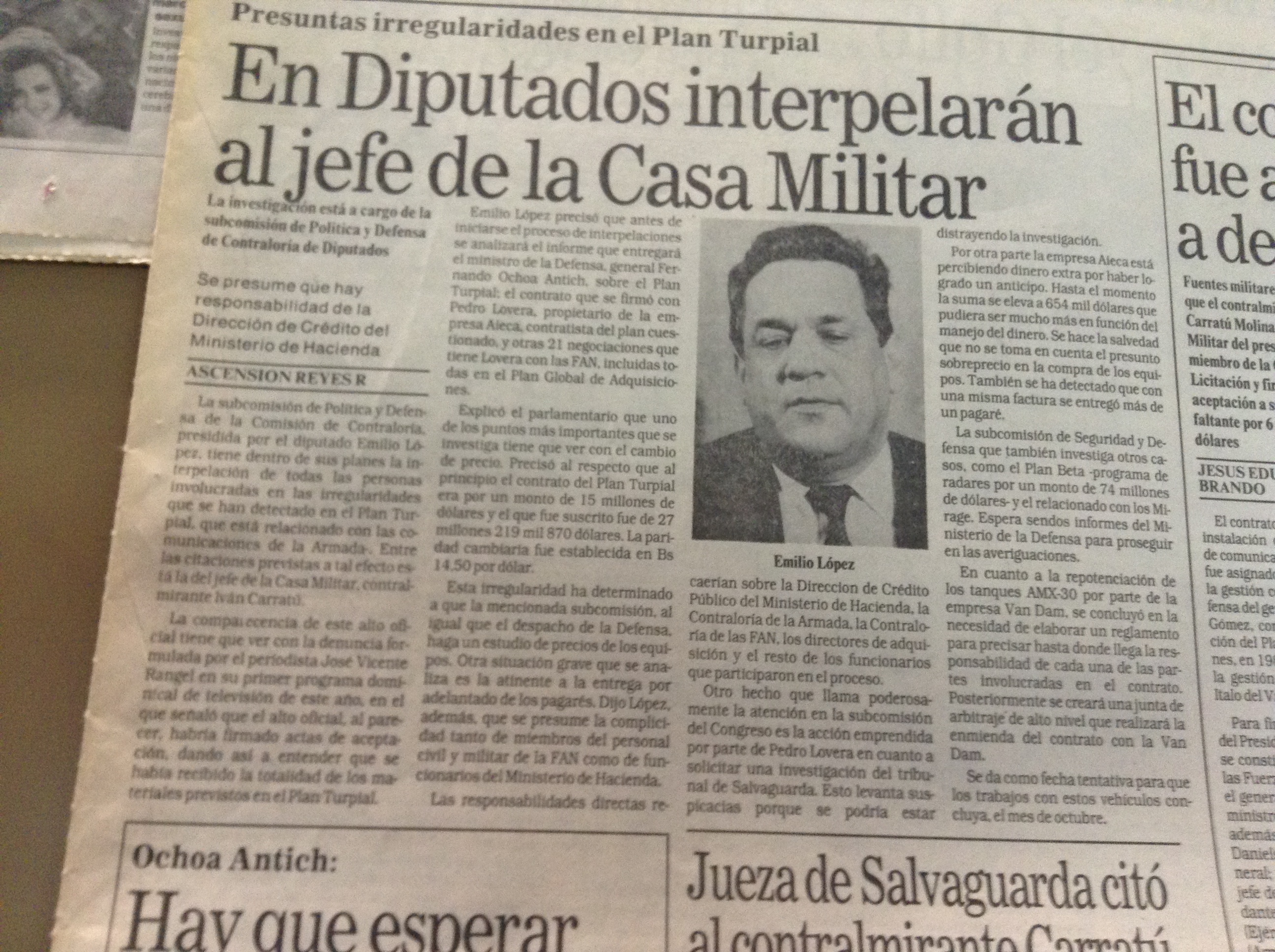
The thing keeping CAP up at night
…was a threatened Teachers’ Strike.
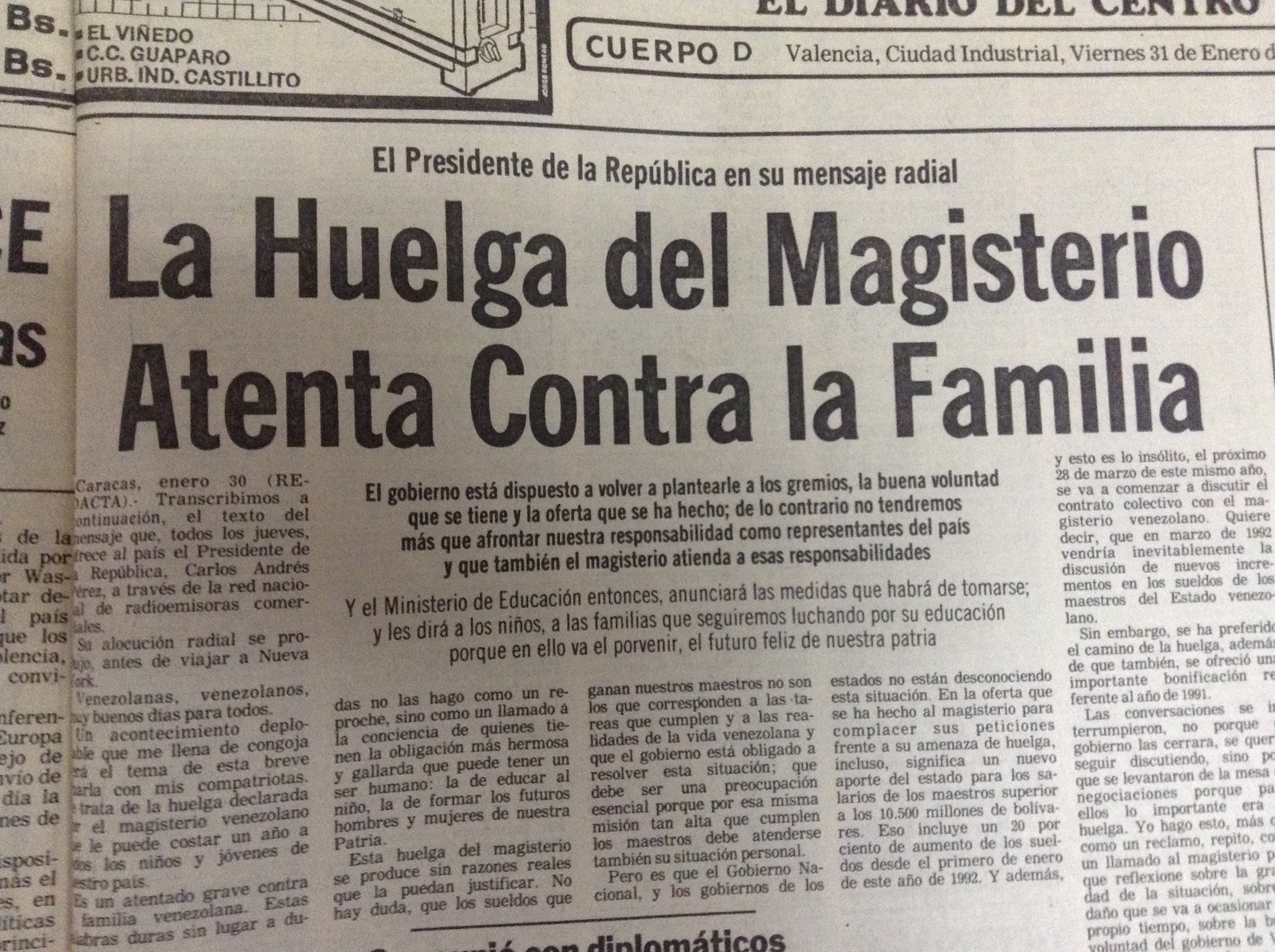
And of course plenty of people hated President Pérez’s guts
…for reasons that they couldn’t articulate in anything like a convincing argument:
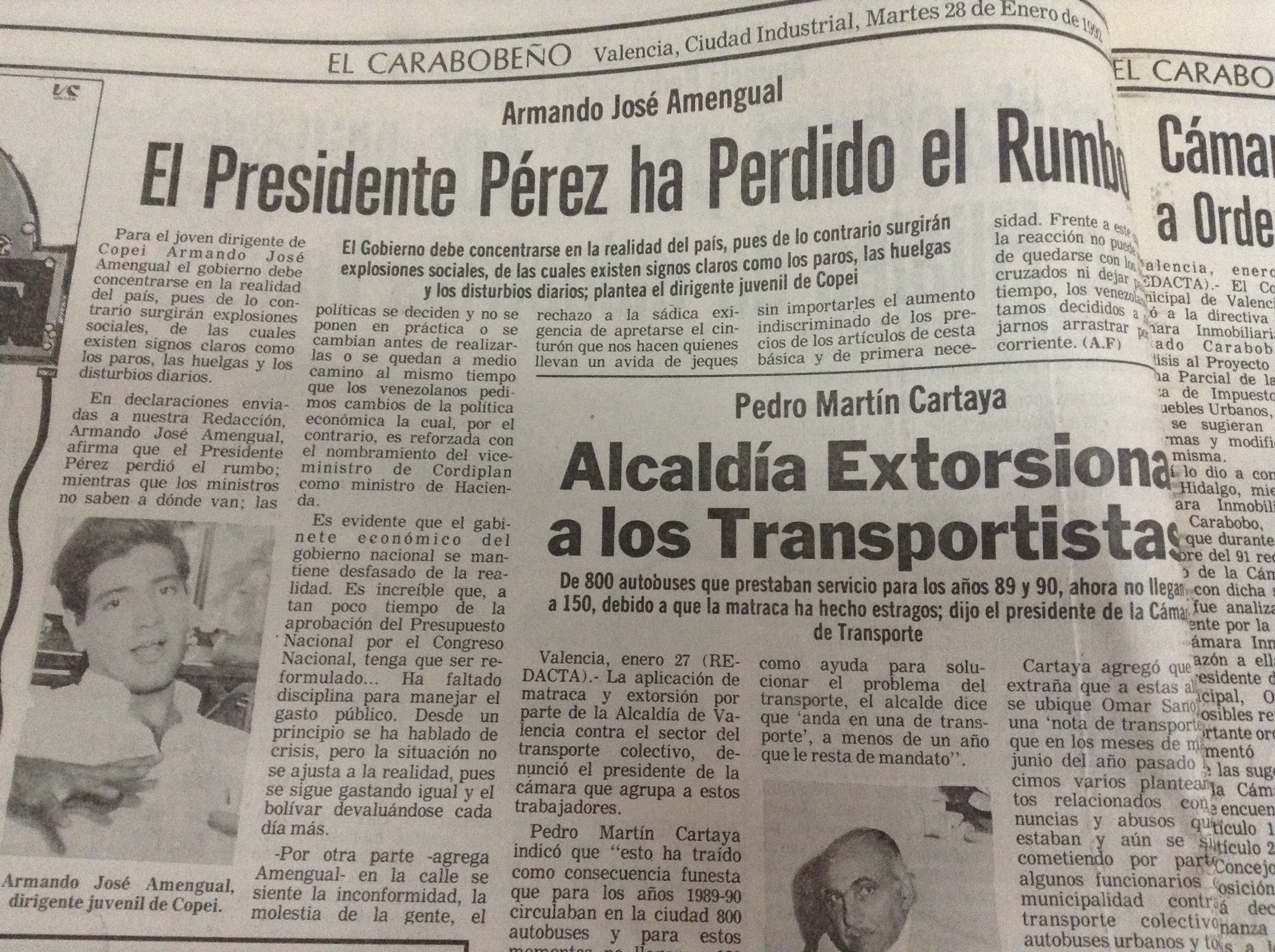
Henrique Salas Römer was writing deathly boring OpEds… 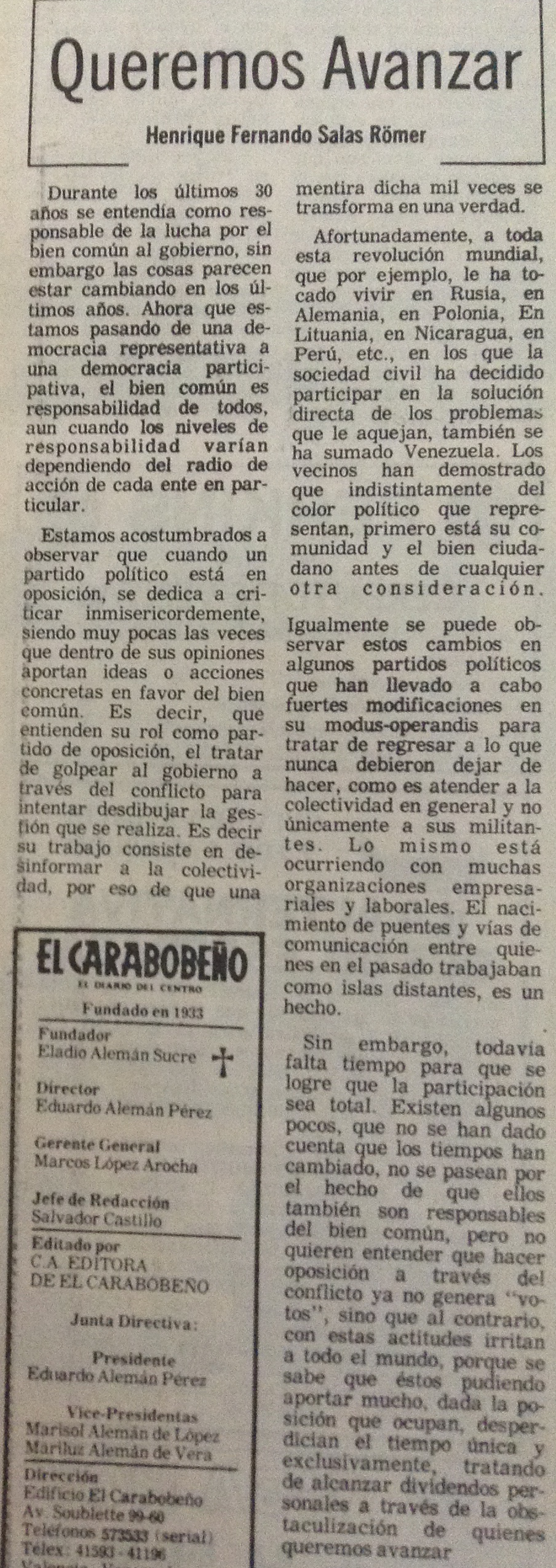
Some facts we “forgot to remember”
Like, the economy was growing strongly:
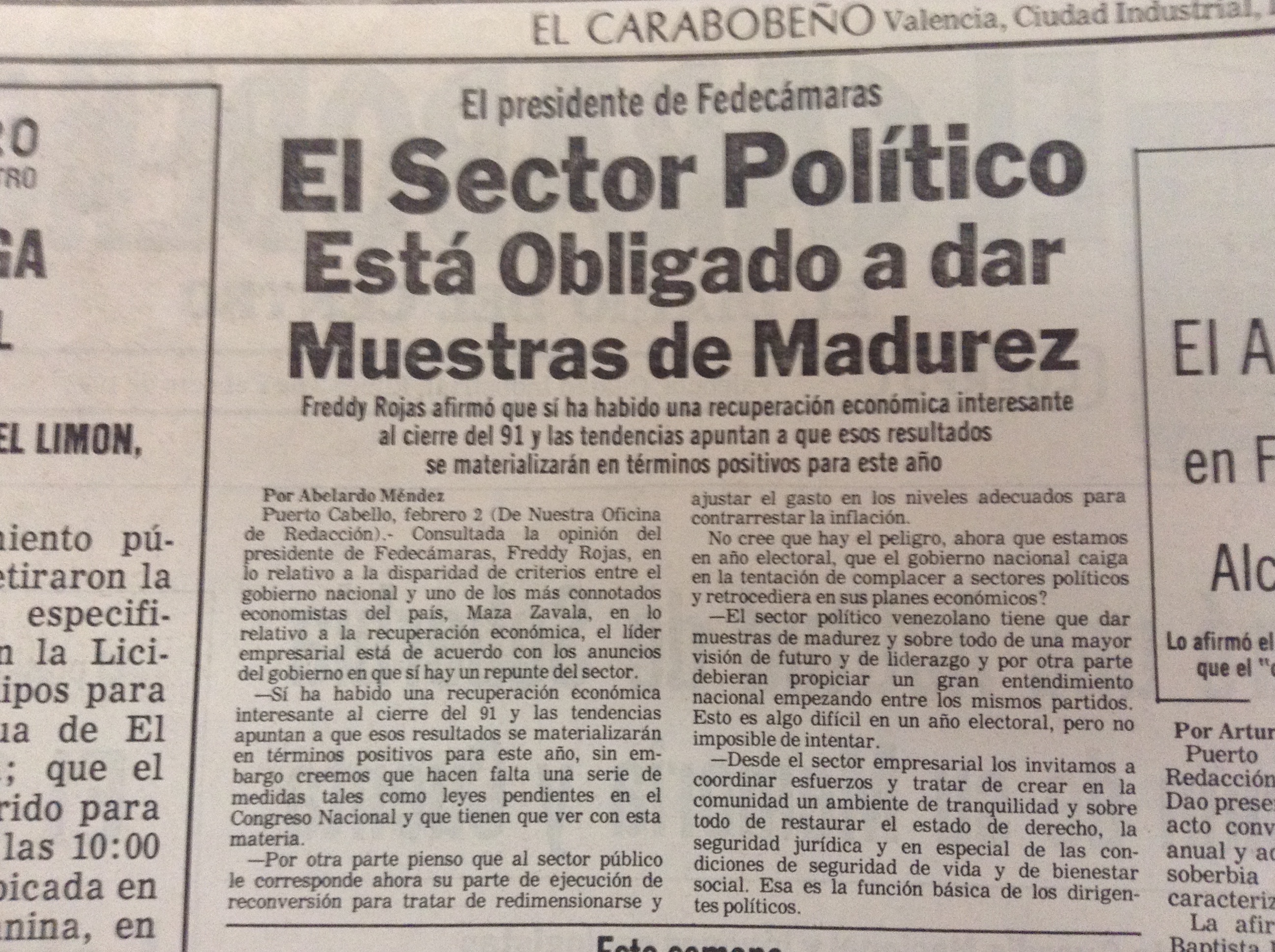
Some familiar faces pop-up back then
…and don’t exactly cover themselves in glory, in the foresight department…
Congressman Miguel Henrique Otero was aghast
…at a recent Cholera outbreak:
And some problems that we think of as brand new
…turn out to be golden oldies:
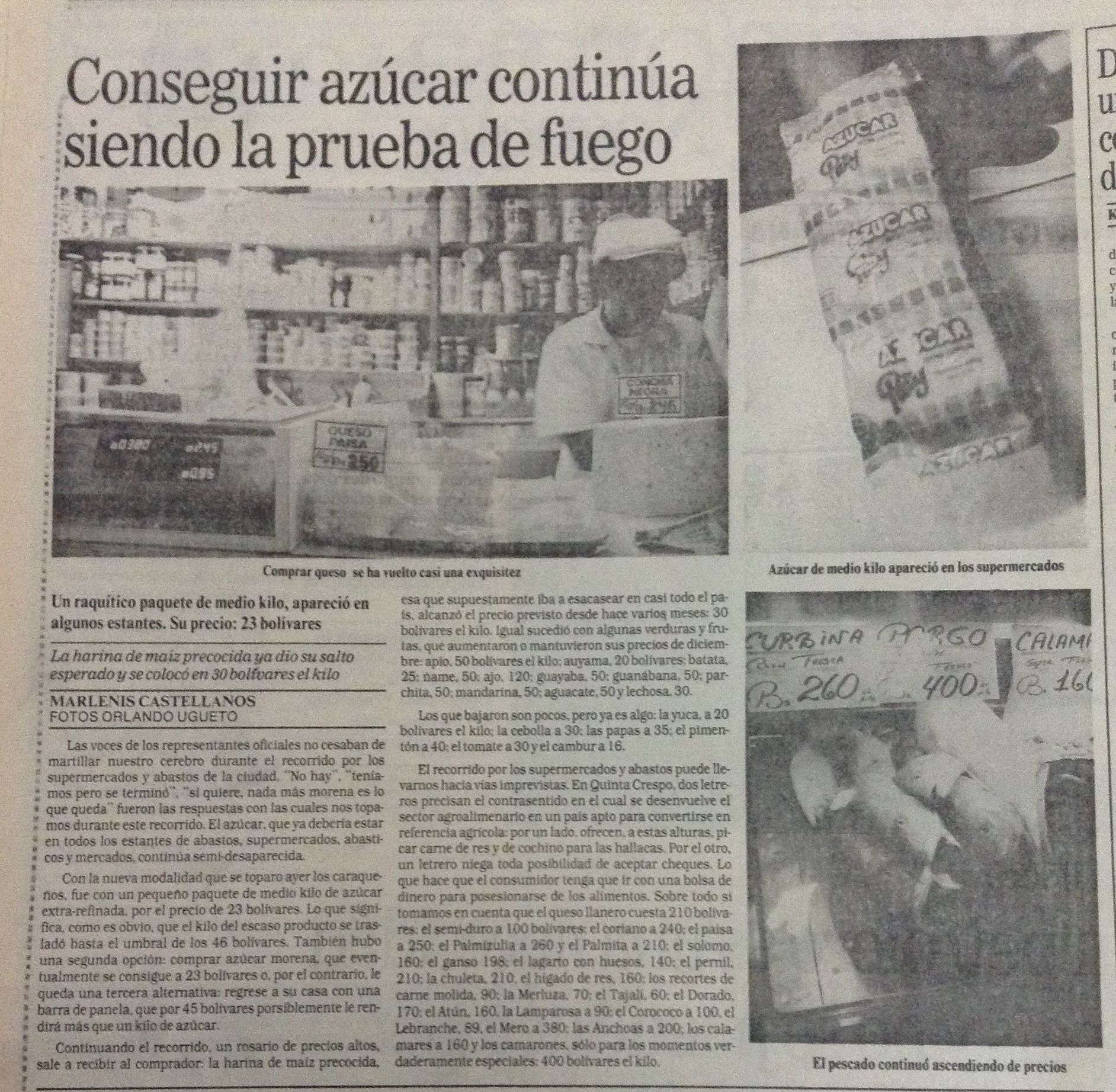
While other stories seem lifted straight out of the
“Eramos Felices y no lo Sabíamos” file
People were horrified Tocorón held 1,170 inmates…
…when it had only been designed for 700. (Today, it houses 6,472, and no, it’s never been formally expanded.)
Of course, CAP was in Davos
…playing World Statesman.
While Caldera sniped at home…
…trying to get the hashtag #Convergencia to stick years before there was any such thing as a hashtag.
The Takeaway
On the eve of 4 de Febrero, Venezuela was a normal country. It had its problems, for sure — the pathetic editorial standards of its newspapers among them. It was dealing with them, though.
Debate in the public sphere was open, people who got up to hanky-panky in procurement contracts found themselves in hot water. Attempts to challenge democratic norms (like “university autonomy”) created a furious backlash and the government was forced to tread carefully.
Inflation seemed high at the time — but now we know better. Prison conditions seemed bad at the time — but now we know better. The government seemed corrupt at the time — but now we know better. Rafael Caldera seemed like a way out of the crisis at the time — but now we know better.
The scale of the democratic, social and economic involution in these last 25 years is, well, almost impossible to overstate.
Caracas Chronicles is 100% reader-supported.
We’ve been able to hang on for 22 years in one of the craziest media landscapes in the world. We’ve seen different media outlets in Venezuela (and abroad) closing shop, something we’re looking to avoid at all costs. Your collaboration goes a long way in helping us weather the storm.
Donate



